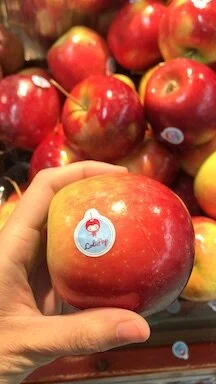FoodTech in Israel: Am I just a hippie-ed out millennial wanting organic oat milk for my matcha latte, or is this outrage justified?
Any American living in Israel knows that when you shop at a grocery store in Israel, it’s very much Anna Wintour entering Vogue in the Devil Wears Prada. I have to sike myself up for a day before I head there thanks to the massive lines, low stocks, and overall gloomy customer service.
Like many American millennials (aka the Green Generation), I am trying to be more environmentally conscious. I always BYOB (bring my own [water] bottle), I recycle, and I gave up plastic bags long before stores started charging for them. Recently I went next-level and also let go of paper towels (harder than you may think).
To be fair, I grew up in a household in which we recycled, composted, raised our chickens for eggs, and even had bat houses to naturally combat mosquitos. You could say my father was ahead of this trend there. Nevertheless, according to the Global Web Index, millennials are more likely and willing than any other generation to pay extra for sustainable or eco-friendly products.
This morning I entered the grocery store with my cloth bags and began at the produce. As I stood picking my tomatoes, a man came in front of me and took about 20 of those plastic bags to put produce inside. I thought after five, he may stop. Nope. Kept going. And there I was handling my tomatoes with such care, gingerly placing them into my cart bag-free. Despondent I wondered, did his 20 bags just cancel out my zero?
Cute sticker, but after googling I still don’t know where this apple came from.
And then it hit me. Where is the awareness in Israel about living a more environmentally conscious lifestyle? Am I the cheese who stands alone? I’m pretty sure not many people are cutting, as I do, the netted plastic sacks potatoes, and oranges come in here with images of tiny trapped bird legs and stuck dolphin noses in their heads (it haunts me, truly). I actually have to drive my recycling to a location to dispose of it properly, and when I do, I often find the bins neglected and overflowing- they are so rarely collected.
Eventually, I moved on from tomatoes to apples. I wanted something local. None of the signs told me where the fruit originated, and out of 5 apple varieties, two had stickers. Only one sticker had the country of origin- which was Argentina. The other I guess was a sticker just for the hell of it?
I asked myself, are you just being a crazy hippie-ed out millennial wanting organic oat milk for your matcha latte, or is this outrage justified? I landed on the latter. As a consumer, is it not my fundamental right to know where my food comes from? How can I make informed decisions about the food I purchase if I am not given any information to work with? And if we’re not providing labels, how safe are the rest of the sourcing and distribution processes?
I decided to dive deeper into the FoodTech scene in Israel in hopes of discovering some companies that help consumers and food retailers make more informed decisions. While I still most of my questions remain unanswered, these home-grown Israeli companies are taking strides toward more responsible food safety, packaging, production, and ingredients. And hey, that’s a start.
TIPA has bags for produce, like my “friend” at the store who used them without a second thought, that are entirely compostable. Can you imagine what a difference a major chains like Rami Levi or Supersal could have if they opted for more sustainable packaging?
Yofix is a company producing a vegan yogurt. What’s so great here? Not only do they boast a low ecological footprint and no waste, but also clean and clear labeling. Similarly, goodfoods uses molecular processes to create cheese-like products that are up to 99% fewer greenhouse emissions, water, land, and energy compared to their animal-based counterparts.
Clarifruit is a startup using technology in a smartphone to help measure the ripeness of fruits and vegetables. This incredible technology provides retailers and food suppliers with information regarding firmness, stains, acidity, and more, as well as GPS-based information like weather and the time of the analysis. This information is then uploaded into a cloud database where the user has access to its own big data algorithm. Clarifruit can help reduce food waste by more accurately monitoring and predicting food supply needs.
inspecto allows supermarkets to monitor for contaminants in fruit in vegetables before distribution. This helps the consumer to remain safe from any recalls and ensures they’re presented only consumable produce. What differentiates this from other methods? Organizations needn’t require a chemist or technician to conduct food safety checks.
Israel is host to some of the most innovative and creative people on the planet. They say, necessity is the mother of invention, and as millennials and generation z’ers make sustainability a priority, companies will be forced to evaluate their processes. I look forward to seeing all that exciting Israeli energy funneled back into the way we source, distribute, buy, and consume food.


